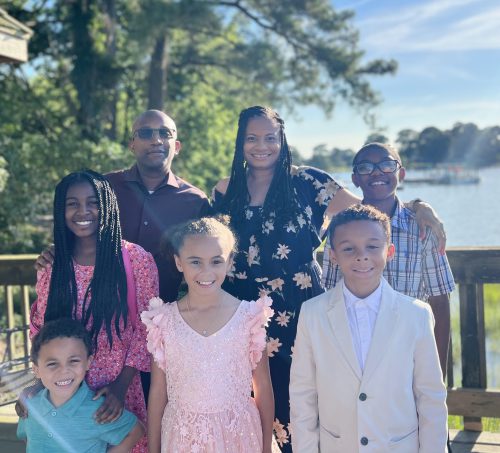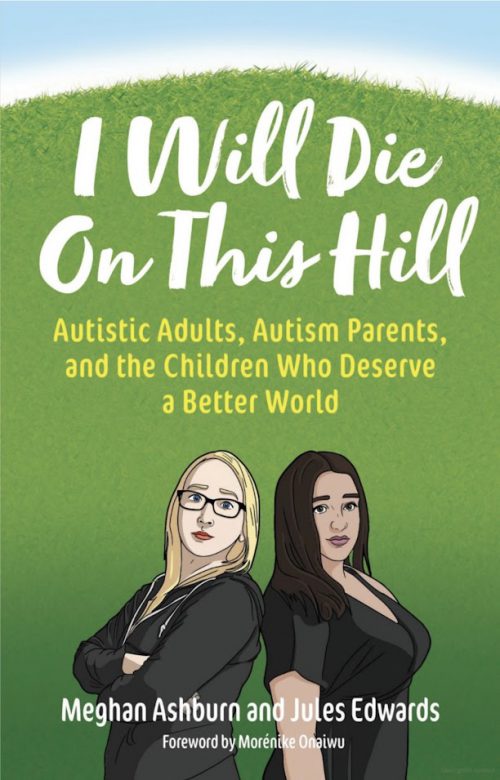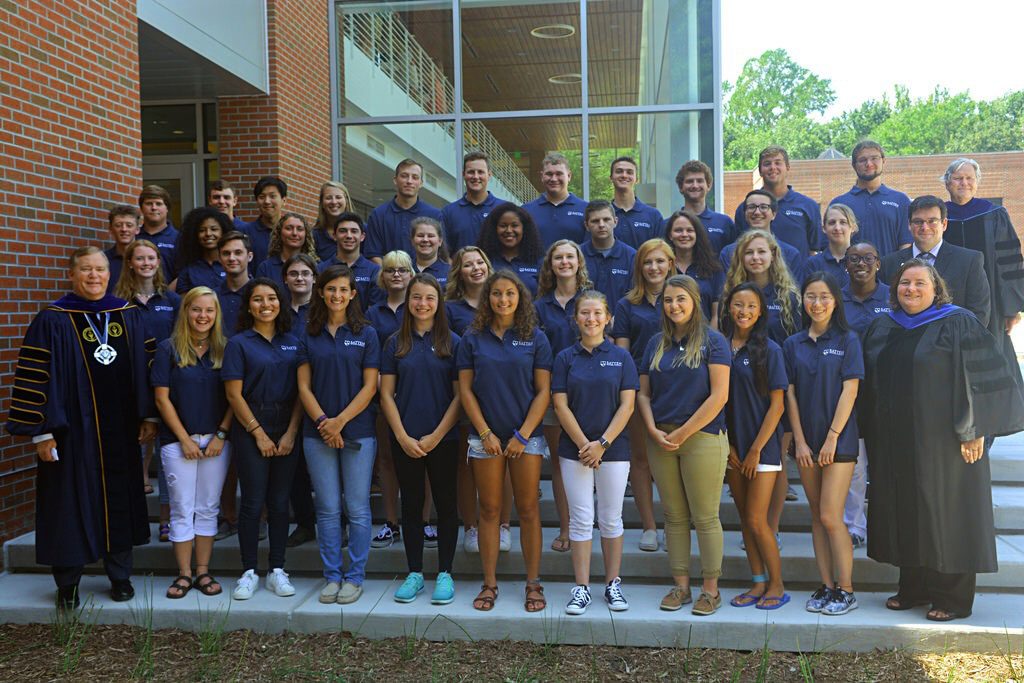Grant stands with her husband and five children, aged 4 to 14.
Andrea Grant|Courtesy
With a disproportionate number of foster homes to children in need, foster care advocates like Andrea Grant call for support.
Amid a nationwide foster parent shortage, the individuals and organizations at the forefront of the foster system call attention to the need for support.
The shortage made local headlines in an April 4 article from WTKR News 3 covering the rising demand for foster homes in Virginia Beach. The article said, “Currently, there are 70 approved foster homes in the city, while the average number of children in foster care hovers around 200.”
Outside of being Virginia Wesleyan’s Coordinator of Student Professional Development, Andrea Grant is a parent and passionate advocate for foster children.
For those interested in foster parenting, Grant offered encouragement: “If you’ve been on the fence, the time is now.”
Grant became a foster parent in the summer of 2013. “I’ve fostered over 25 children, from two days up to almost three years,” Grant said.
Grant’s knowledge of foster care derived from her early exposure to the foster children her grandmother welcomed. “Even as a child, we always had foster children in our family and their families,” Grant said. “[My grandmother] would open her doors to the biological family for visits, and they became like our family too when the children were with her.”
Grant said this shaped her worldview of foster care. “When I work with children, I always see them as a part of a family unit.”
In her own fostering journey, Grant began as a single parent. She said her husband happily joined the picture.
“When I met my husband, I let him know this is what I do, and that’s what comes with me. And he agreed,” Grant said.
She described her household as “colorful and busy.”
“I always felt like I would adopt, always felt like I was going to be a part of a larger family,” Grant said. She called foster care “a calling” for her.
Grant became a foster parent through the Up Center, an organization based across South Hampton Roads, “which provides more than 20 critical support services for children and families in our community,” including foster care and adoption, according to the organization’s website.
Sabrina Carr, Outreach Coordinator for the Up Center, spoke to the agency’s mission: “to provide the best matches possible between a child entering into foster care and a foster parent that they’re going to be placed with.”
Although Grant has capped her house at five kids, she remains active in the agency as a volunteer to connect other families with resources to help them foster.
In Virginia, Grant said there are roughly 5,000 children in foster care and for those who cannot be placed in a family, she said they stay in a social services office, hotel or hospital.
“The trauma of being taken from your environment, and then there’s nowhere for you to go, adds to their trauma,” Grant said.
Grant said that additional support will help alleviate this burden for more children.
Aside from a background check and proof that you can pay your bills, Grant said to be a foster parent, you need “a stable home, a room for the child and room in your heart.”
Carr said she feels incredibly rewarded to be a part of the onboarding process for families. She often meets people who are unsure about fostering but want more information. “By the time they come to the information session and they’re done, the next morning, I might have an email that they’re ready,” Carr said.
Foster families can be placed through both government social services and external agencies.
Typically, when fostering through an agency, “those are going to be therapeutic foster homes,” Grant said. “You get more training in crisis management. You get more training in parenting. You get support groups, and you get a clinician that is like your liaison between you and the social worker.”
Carr said these resources open up possibilities for foster parents without experience. “You don’t have to have parenting experience to be a foster parent. That’s where our training comes in, and our guidance and our support from our team,” Carr said.
For foster children, Grant said, “The best outcome that we can give them comes from a stable environment.”
“When a family environment or when a home environment is stable, then that child can come into that and really learn to stabilize themselves,” Carr said.
Carr challenged preconceptions that a foster family household should look any one way. She said the agency works with single individuals and couples, and dedicates attention to spreading the word within LGBTQ+ community members and empty nesters.
In the matching process, Grant said the foster community needs diverse families to meet the diverse needs of the children.
Grant said she had noticed many people dissuaded by thinking that “you can’t be a foster parent because you would love them too much and get too attached.”
“I get the sentiment, but what you’re really saying is that all these foster parents that are taking care of these kids have a barrier to completely loving these children, and that’s just not true,” Grant said.
To Grant, being all-in is necessary for fostering, and that comes with pain. “We love them with our entire hearts. We give up resources. We give ourselves. We invite them into our families. We get attached. We sign up for some heartbreak to help heal the hearts of these kids and their families who are broken completely.”
Grant explained the mindset that guides her through these times. “I have to remember that we put a family back together,” Grant said.
“[The foster care system] is definitely flawed, but there’s so much involved,” Grant said.
She said the system deals with families, court systems, social services, communities and the children themselves. She said more resources and people would help.
Grant said that social services must take on more children, even if they are understaffed. “That’s not an excuse. It’s a reality,” Grant said.
She explained that social workers, agencies and foster families are a team, and those who do their part well free up time for others to focus on areas of need. “That’s why we need really amazing foster parents who are organized,” Grant said.
Knowing what it looks like to lack resources, she said insight from fostering influences how she approaches her job and inspires her to create initiatives that support students in pursuing their goals. “It gives me the recognition that not all of our students have full villages behind them.”
Grant and Carr encourage involvement in the foster community through volunteering, donation, education or taking the next step of welcoming children into your family.
For more information, visit theupcenter.org.
By Lily Reslink



